Mindfulness and Mindfulness Exercises…how it can enrich our lives
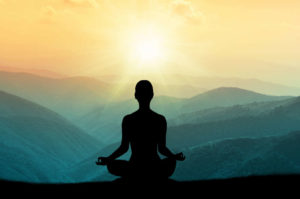
So what is it with Mindfulness? What’s with the buzz about it? Mindfulness means having a more helpful relationship with our thoughts and feelings:
- Knowing where we are (being in the moment)
- Awareness of – but not getting stuck in – where we have been (reflection)
- Thinking about where we are going (anticipation)
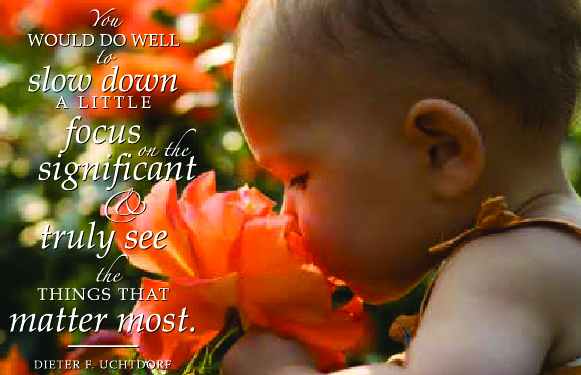
You would do well to slow down a little, focus on the significant & truly see the things that matter most – Dieter F Uchtdore
How easy is it to rush through life, not stopping to notice very much? How often do we find that we’ve driven to work, or walked the normal way home and realised on arrival that we can’t even remember any part of the journey? We all do it, and yet how much better would we feel, if we stopped for a moment ‘to smell the roses’; to notice the lovely music coming from the street musician; or notice and smile at the elderly couple helping each other on the pedestrian crossing as we wait in traffic?
When we practise mindfulness and pay more attention in the present moment to our own thoughts and feelings, and to everything around us, it can enormously improve our sense of well-being. Mindfulness exercises can help us increase our enjoyment of life and understand ourselves better.
‘Every day is a new beginning – take a deep breath and start again’
Slow down – experiencing life in the present moment:
- Gives heightened awareness to what’s happening ‘right now’
- Makes life interesting and fresh
- Keeps you alert, aware and keen to learn.
‘Accept your past without regret, handle your present with confidence and face your future without fear’
The Mindfulness companion (book)
The Power of Mindfulness – what we practise grows stronger (youtube)
What is Mindfulness? – Peace, Calm and Happiness

All the secrets of the universe can be felt in the kiss of a soft breeze on your cheek, and the lifeforce of all things seen in a single blade of grass shimmering in the sunlight – Cristen Rodgers
When we stop noticing the world around us, we can lose touch with how our bodies feel and just focus on our thoughts, without noticing how those thoughts affect our emotions and behaviour. Mindfulness can reconnect us with our bodies and all that we are experiencing. It means becoming aware of all the sights, sounds, smells and tastes in the present moment, even simply noticing the breeze on our cheek on a sunny day. It is having an awareness of our thoughts and feelings as they happen – it is not about making those thoughts go away, but more about noticing those thoughts and letting go. Mindfulness exercise allows us to see the present moment clearly, which can change how we see ourselves and our lives, to the improvement of our well-being.
Mindfulness is a very simple form of meditation that was little recognised in the West until recently. Typical meditation consists of focusing our attention on breathing as it flows in and out of our body, incorporating mindfulness exercises, which are imperative and attributes to our ‘peacefulness, calmness and happiness’
Focusing each breath in this way, allows us to observe our thoughts in our mind, to let go of struggling with them. We then realise that thoughts come and go of their own accord.  We can watch as they appear in our mind, seemingly from thin air, and see how they disappear, like a bubble bursting!
We can watch as they appear in our mind, seemingly from thin air, and see how they disappear, like a bubble bursting!
Mindfulness can aid our mental well-being
When we practise mindfulness and become fully present, aware of where we are and what we are experiencing, it can help us increase our enjoyment of the world about us, understand ourselves better, and to not over-react or be overwhelmed by what is happening. When we are more aware, we will notice things anew, which we have overlooked before.
Mindfulness exercise makes us more aware of our constant flow of thoughts and feelings. It allows us to recognise when we are ‘bogged down’ in that flow, which can have a very negative effect on our well-being, unless we learn to become more aware of where our thoughts are flowing, step back from the repetitive pattern and realise that we are in charge of our thoughts. Being aware like this can help us notice signs of stress sooner and therefore help us cope with it better. Mindfulness exercise is recommended by the National Institute for Health and Care Excellence (NICE) to help prevent depression. Mindfulness: Beginner’s Meditation guide
Growing Mindful Cards (Ebay)
Mindfulness Benefits
Once we are practising mindfulness exercises regularly, we come to understand that positive thoughts and feelings, incorporating mindfulness, allows us to catch negative thought patterns, and rid us of stress, creating the following benefits:
- A ‘happy feeling – the feel good factor’ thus alleviating ‘depression‘
- Make us feel and look amazing
- Look years younger and our body feel younger
- Feel more ‘confident‘
- At ‘peace’ with ourself and everybody else
- Be non judgemental
- Admit our ‘faults‘ and apologise when wrong – none of us are ‘perfect‘!
-

Smile your way to success
Smile – a smile costs ‘nothing‘- makes us look younger and feel happy
- Slow down – become less impatient – slows the ageing process
- Compose ourself – clear mind – great results
- Have ‘RESPECT‘ for others and ourselves – great results produced!
- Work as a ‘team’ – help each other – resulting in a ‘happy’ environment
As we spend more time practising mindfulness, we will feel kinder, calmer and more patient. This change is likely to ‘snowball’ into other parts of our life as well. Mindfulness can help us become more playful, greatly increase our enjoyment of a good chat with a friend over a cup of tea, (or glass of wine) and then help us unwind for a relaxing night’s sleep.
Mindfulness trains our body to thrive – athletes use mindfulness to aid peak performance – from practising acceptance of negative thoughts, to transforming their fears. Top coaches talk about coaching the ‘whole person’.  Athletes, in all fields of sport, can learn a blend of mindfulness, including tactical breathing and cognitive behavioural training to foster ‘full presence and conviction in the moment’. The mind cannot differentiate between imagination and reality – if you imagine it clearly it will help it to happen.
Athletes, in all fields of sport, can learn a blend of mindfulness, including tactical breathing and cognitive behavioural training to foster ‘full presence and conviction in the moment’. The mind cannot differentiate between imagination and reality – if you imagine it clearly it will help it to happen.
Mindfulness exercise can boost creativity – writing, drawing, painting or playing an instrument all have accompanying meditative practices and mindfulness can also apply to the creative process.
How we can use more mindfulness in our everyday lives
Reminding ourselves to take notice of our thoughts, feelings, body sensations and everything around us is the first step to mindfulness. Going about our daily life, we can notice our sensations, the food we eat, even the air moving past our body when walking. This will greatly interrupt our normal ‘mindless’ way we move through life and give us a fresh perspective. How often have we sat eating our dinner, whilst watching tv and sending texts? We need to practise more mindfulness and really notice the taste of our food – do anything three times a day, every day of our life and we are likely to be bored. Eating is no different and we are experts at distraction – hence how our screens become our dining companions. But research in the fast-growing field of mindfulness shows that simply changing our eating habits and becoming more mindful could be a key to weight loss.
 We need to practise mindfulness exercise regularly, and it can help to choose a regular time, such as the journey to work or walking the dog. During this time we can make a conscious decision to be aware of the sensations created by the world around us. We all naturally possess this ability at differing levels, but it is more enhanced when we practise mindfulness daily. Trying new things can help us notice the world in a different way – even something as simple as sitting in a different seat in a meeting or walking a new way from work can change our sensations.
We need to practise mindfulness exercise regularly, and it can help to choose a regular time, such as the journey to work or walking the dog. During this time we can make a conscious decision to be aware of the sensations created by the world around us. We all naturally possess this ability at differing levels, but it is more enhanced when we practise mindfulness daily. Trying new things can help us notice the world in a different way – even something as simple as sitting in a different seat in a meeting or walking a new way from work can change our sensations.
The Little Pocket Book of Mindfulness (Ebay)
Mindfulness – how to practise mindfulness & conquer our emotions – youtube
The Little Book of Mindfulness (kindle edition)
How mindfulness can affect our everyday lives
There is also growing research which shows that when we train our brains in mindfulness, we are actually remodelling the physical structure of our brains. The stress reduction research programme ‘Mindfulness Based Stress Reduction’ (MBSR), displays how mindfulness lights up parts of our brains that do not normally activate when we’re mindlessly running on auto-pilot, so strengthening neural connections. By training our brain in mindfulness, we can build new neural pathways – thus boosting concentration, flexibility and awareness – and impact on areas of our brain that modulate emotional reactivity.
‘As you sow, so shall you reap’ What we practise actually changes the structure of our brain. It is possible to promote and develop the areas of our brain that are there for kindness, altruistic feeling and the regulation of difficult emotions. ‘Well-being’ is a skill we can learn!
Who can benefit by practising mindfulness?
Anyone can practise mindfulness exercise – there are no barriers. 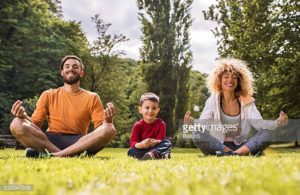 Young or old, male or female, no limits for physical ability, religious/spiritual or otherwise. No experience necessary – just ourselves and curiosity! Mindfulness is not obscure or exotic; as stated above, it’s what we naturally already do and how we already are. We all have the capacity to be ‘present’ and we don’t need to change who we are – we just need to expand on these inbuilt qualities with simple mindfulness exercises, which have been shown to benefit us in so many ways.
Young or old, male or female, no limits for physical ability, religious/spiritual or otherwise. No experience necessary – just ourselves and curiosity! Mindfulness is not obscure or exotic; as stated above, it’s what we naturally already do and how we already are. We all have the capacity to be ‘present’ and we don’t need to change who we are – we just need to expand on these inbuilt qualities with simple mindfulness exercises, which have been shown to benefit us in so many ways.
Mindfulness exercise can be practised anywhere, anytime, but it is especially helpful when we realise that, for several minutes, we have been in a pattern of reliving past problems or ‘pre-living’ future worries. We need to free ourselves from the past and future. We can sometimes find it easier to become aware of our thoughts and feelings if we silently voice them: ‘Here’s the thought that I may not get that job‘ or ‘This is me feeling anxious‘. We need to be in the present – not past or future – and focus on our ‘now’, feeling happy and at peace with ourself and others.
The five misconceptions about Mindfulness
There are many ideas about mindfulness, which when we start to practise it, we find quite different from what we expect:
- Mindfulness is not about ‘fixing’ us
- Mindfulness is not about stopping our thoughts
- Mindfulness is not part of some religion
- Mindfulness is not an escape from reality
- Mindfulness is not a panacea
Although stress reduction often results from mindfulness exercise, it is not the ultimate goal – that is to wake up to our inner selves and our mental, emotional and physical processes.
Mindfulness: A practical guide to finding peace in a frantic world (book)
Mindfulness exercise for overcoming anxiety (youtube)
Five easy steps to listening with mindfulness
Listening with mindfulness will open your mind to listening in a non-judgmental way, however to be a better listener to others we need first to be a good listener to ourselves. How often do we feel that someone has really listened to us? And when we’re being totally honest – how often have we really listened to others? We have all – at times – experienced talking with a good listener and felt that lovely feeling of knowing that the person truly ‘heard’ us. Sadly though, this is rare, but although we can’t force others to listen, we can improve our own mindful listening and therefore, hopefully encourage others to do the same.
Good listening is mindful listening. Listening with mindfulness is a combination of intention and attention:
- ‘Intention’ is being genuinely interested in the other person – their experiences, views, feelings and needs. It is said that we should listen to every new person we meet as if they will be our best friend.
- ‘Attention’ is being able to stay ‘present’, open and unbiased as we listen to the other person – even when we don’t always agree with their ideas and desires.
So, to be good at listening to others requires us to be a good listener to ourselves. If we are unable to recognise our own beliefs, opinions, needs and fears, how are we to really hear anyone else? The underlying basis for mindful listening is self-awareness.
 To be a good listener to ourself and to enable us to become better listeners to others, requires the following:
To be a good listener to ourself and to enable us to become better listeners to others, requires the following:
- Regularly ask ourself – “How do I feel right now? Is there anything preventing me from being ‘present’ at this moment for this other person?”
- Feel our sense of presence and expand this to the other person with the intention to fully and openly listen, with interest, empathy and mindfulness.
- As we listen, we should be aware of our own reactions as they occur – our thoughts, feelings, judgments and memories – but then return our full attention to the other person.
- Echo back to them what we have heard, by using the other person’s own words if possible, repeating or summarising the salient points, which will make them feel truly heard.
- Employ friendly, open-ended questions (who, what, where, when, why and how?) to check your understanding and ask for more. Re-state what we heard before we differ. We should always acknowledge the other person’s point of view, to allow them to feel their opinions are validated, before we state our own ideas, feelings or opinions.
How mindfulness can help us in our interpersonal relationships
We can all practise mindfulness when dealing with difficult situations in our everyday life – from our partner, our family, our children, our friends and work colleagues, or our boss. We all encounter times when we need to ‘grab the truth and let go of being right’. Before, during, or immediately after a troublesome encounter with someone, we should pause for a short while, be aware of our feelings of discomfort, anxiety or frustration in our body. Notice how they are making you feel with a detached, compassionate viewpoint. Breathe into them and watch them disappear, like a feather floating away – see the ‘truth’ in these feelings. 
We should slowly tighten our right (or left) hand into a fist and make a note of how the tension feels. Then imagine all our tension in our body flowing to the sensation in our fist. This may only take a few breaths, but notice how easily we can direct our attention to this one small part of our body. Breathe into the tension in our fist and no matter what the other person has said or done (or might), we can choose how we react to this tension in our body.
Now we can open our hand, slowly letting go of the tension and turn the palm face up. We should be aware of the sensations in our hand and how these feelings change. We will notice how we can let go of being ‘right’ and just observe the ‘truth’ of what our body and thoughts are saying. We have no need to throw or push something – if we are willing, we can just accept it as being just what it is – bodily sensations and thoughts flowing through our mind. 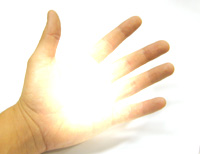
With a final, deep breath we should ask ourselves: “What really matters most at this moment?” “What is the one thing we most need or value?” It could be acceptance, validation, collaboration, emotional space or just honesty. And finally – “Are we able to speak from the full ‘truth’ of this situation?’ If possible/appropriate, maybe say out loud what is happening:
- Describe how our body is feeling – clenching, surging, heat, cold, numbness etc.
- State the ‘truth’ of our emotion – are we feeling anger, frustration, sadness, fear, confusion or shock.
- Declare what we need most in just one or two words – validation, acceptance, understanding, patience, empathy, respect, etc.
Then we should reflect on the other person’s perspective – actually listening to understand them, rather than instantly thinking about our viewpoint and waiting to vent our feelings or apportion blame. Ask the other person to voice their own ‘truth’ via our mindful honesty.
‘Discern, observe and perceive how this mindful truth-telling enhances our lives’
3 ways of using mindfulness to expand our Appreciation, Awareness & Immersion in our everyday tasks and life
In this mad, mad world in which we live, our minds are forever being pulled in every direction, scattering our thoughts and feelings causing us to feel stressed and often anxious. We often say that we can’t even find five minutes in our busy life – let alone 30 minutes – for meditation. However, the enormous benefit to our well-being means that we should all endeavour to at least take just a few minutes to clear our minds to reach a positive body/mind balance, by finding some much-needed calm amongst our hectic day.
- Mindful Appreciation : It is important for us to be grateful for, and appreciate, the simple things of life, that we often take for granted – the everyday things that make our lives easier, but we hardly notice in our constant desire to ‘upgrade’. How often do we think about the electricity when we turn on the light or switch on the kettle; or the clothes that keep us warm; or our nose which allows us to smell the roses?! We should try to make a note of five things every day, which would usually go un-appreciated and try to discover how they really work; be aware of how they benefit our lives; think how it would be without them. We will then appreciate how these things enrich our lives.
- Mindful Awareness : We need to find an increased awareness of our simple daily tasks and their results. If we think of something that we do regularly, which we normally take for granted, like putting on our clothes. Pause for a moment as we pick them up and be mindful of where we are; how we feel and why we’ve chosen the clothes we have. Likewise, as we check our emails, take a moment to appreciate our brain that enables our understanding of how to do this. And when we smell food, be aware of how fortunate we are to have good food to eat. When we have a negative thought, we can choose to stop, think of the thought as unhelpful and release the negativity.
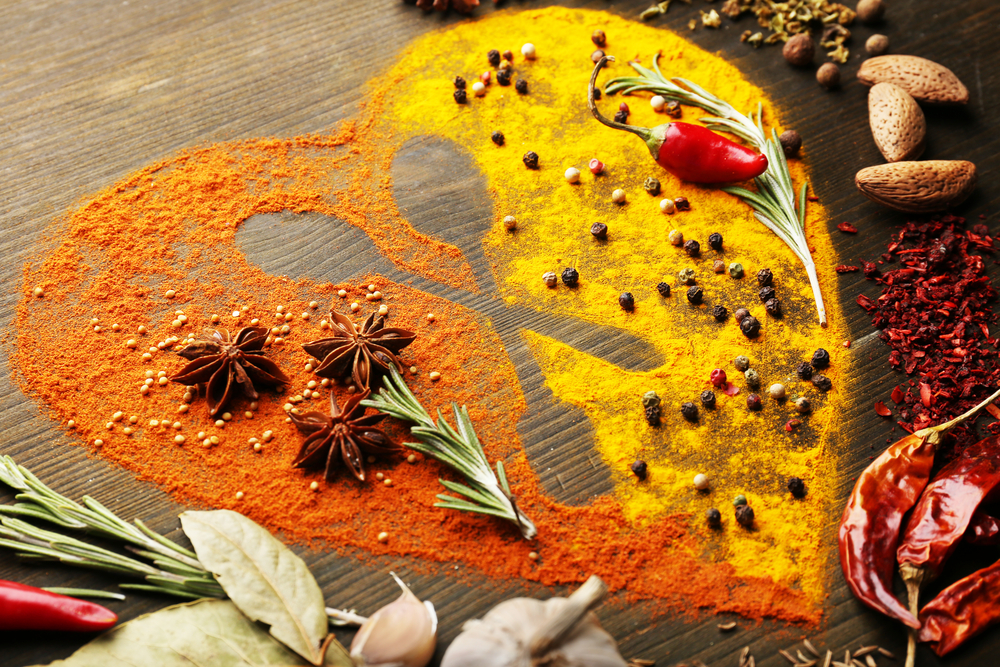 Instead of going through life on autopilot, we should stop to raise mindful awareness of what we are doing and how it enhances our life.
Instead of going through life on autopilot, we should stop to raise mindful awareness of what we are doing and how it enhances our life. - Mindful Immersion : If we can find contentment in an everyday routine task, we can stop the constant endeavour to finish the duty, merely to rush onto the next task and fully experience it afresh. When we are cleaning our home, we should immerse ourselves in every nuance of the activity. Listen to some favourite music -sing and dance if it makes us happy and instead of treating it as a chore, make it a new experience as we totally immerse ourselves in the task:
- Feel our muscles as we vacuum the floor
- Take note and enjoy how clean the house looks and smells
- Recognise how shiny the furniture looks when we finish dusting
- When we use mindful immersion we discover new experiences in the everyday routines, becoming aware of each step by immersing ourselves in the process. Take the activity beyond a routine by fully immersing ourselves physically and mentally. We may even find we enjoy it for a change!
So….why should we practise Mindfulness?

Happiness cannot be far behind a grateful heart and a peaceful mind
When we practise a moment by moment mindfulness of our surroundings, it helps us cope better with any troublesome thoughts or feelings, which create stress in our lives. Regularly being mindful – rather than running on auto-pilot with feelings caused by negativity in the past and fear of future happenings – allows us to utilise the ability to keep our minds in the ‘present’ and cope with all life’s challenges in a clear-minded and calm manner.
We can then free ourselves from unhelpful, self-limiting thought patterns and focus on positive emotions, increasing compassion and understanding of ourselves and others.
Live each and every moment of our life!
When we are communicating with others, be aware of our intention and give attention to what they are saying. When we are alone, practise mindfulness and notice everything around us and our thoughts. In this way, we will immerse ourselves in all that we do.
Live life both one moment at a time and with a sense of the greater forces and meaning above and around you.
Too many of us live casual lives, thinking we have time for everything and that very little is important. We dream of the future and waste away the present. But our lives are not infinite and every minute is a gift to be enjoyed and will never be repeated. When we live rich, mindful lives, using the time we have to it’s full potential, we can be much, much happier.
With regular practise of mindfulness we will reduce stress and increase our enjoyment of life:
- Slow down, feel more grounded and in control
- Break free from negative thinking patterns
- Increase our awareness
- Stop being judgmental
- Start to live in the moment
- Love and believe in ourself
- Live, Laugh, Love
- Be happy
- Be at peace with ourself and others
- Compliment and appreciate people
- We are all equal and as good as each other

SLOW DOWN
TAKE A DEEP BREATH
LIVE, LAUGH, LOVE!
IF YOU CAN DREAM IT YOU CAN DO IT!
BE AT PEACE!
LOVE YOURSELF!
Live Every Moment, Laugh Everyday, Love Beyond Words
© 2017 Mindfulness4u.org All rights reserved





